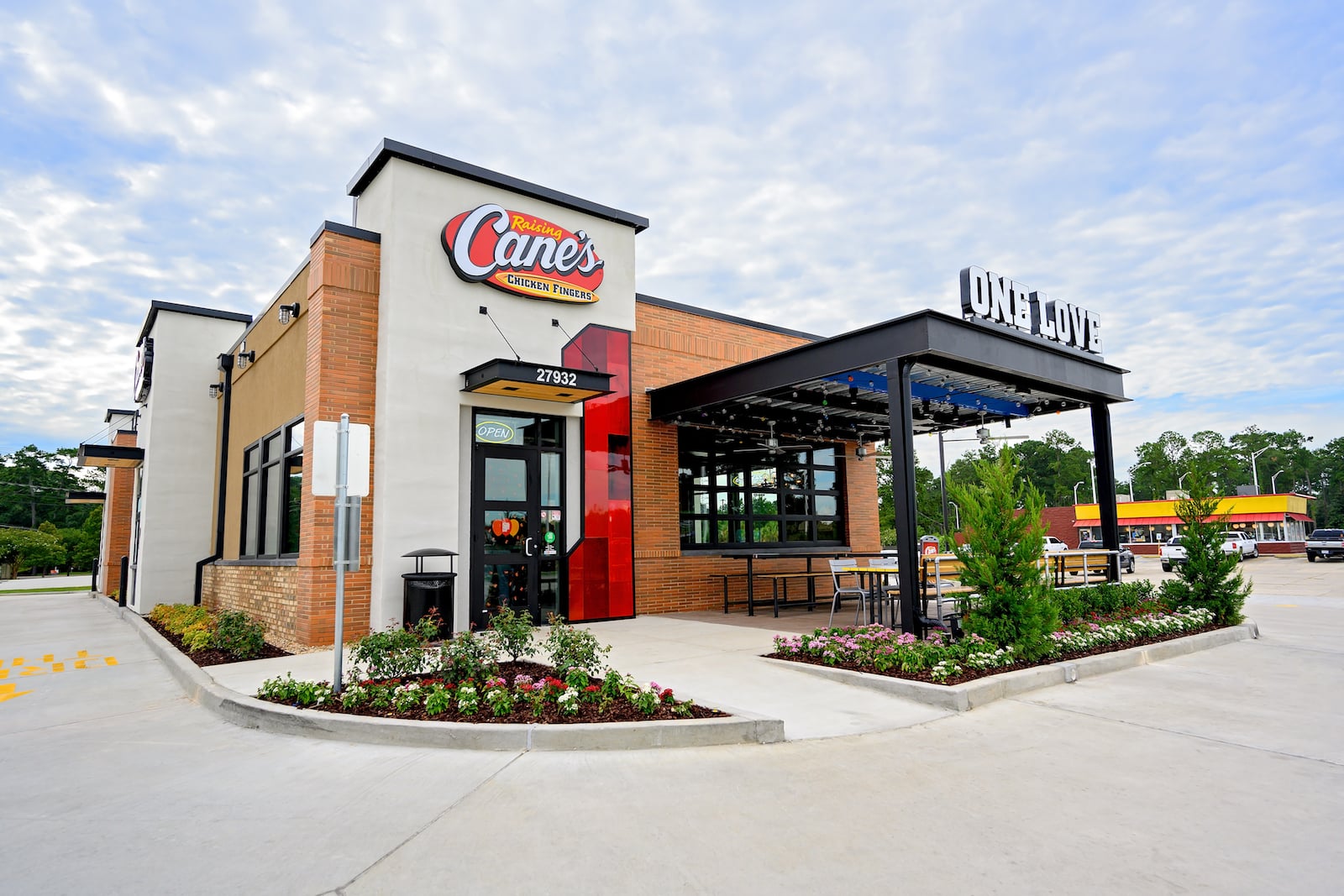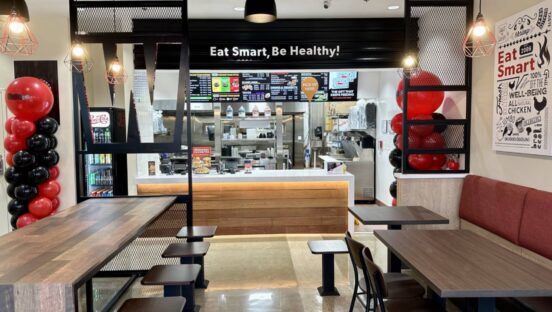Raising Cane’s founder and co-CEO Todd Graves and his team were heavily following the spread of COVID-19 through China.
The Baton Rouge, Louisiana-based company knew it was coming to the U.S. and that it had the potential to overwhelm the country like China. It immediately made Graves and others restless, especially after seeing the drastic measures China took in terms of preventing citizens from leaving their homes.
“We were like ‘Oh my gosh,’ what could this mean for our business?” Graves recalls.
One of the first major blows was canceling a company trip to Cancún, Mexico, where Raising Cane’s planned to celebrate its five-year plan. Then managers and employees had to think quickly and work with CDC guidelines to create social distancing in restaurants and implement what Graves calls an “uber-intense focus” on sanitization.
Managers now meet with employees outside the restaurant before work to ensure they are healthy.
“Our industry is full of really tough people,” Graves says. “You work when you don’t feel well and you work long hours and you’re on your feet for long hours. We had to break the mold and talk to them before their shift.”
“… I’m a fanatic about food safety,” he adds. “I believe our industry has the obligation of serving a food-safe product. I feed people’s kids. So we always take it incredibly seriously.”
Of roughly 500 restaurants, 33 non-drive-thru locations temporarily closed. But Graves refused to furlough or lay off any of his 23,000 workers.
“Our mantra then was no crew member left behind,” Graves says. “I wanted the team that went into this pandemic to be the team we come out with. And so we’re going to work like heck to get through it.”
It was tough at first, Graves acknowledges. At one point, sales were down as much as 30 percent.
“That’s scary,” Graves says. “Thank God it was only 30 percent. We make small margins on very large volumes.”
Raising Cane’s adjusted its marketing and contacted media outlets to let customers know that restaurants are still able to serve food with enhanced safety measures. The message was heard, and customers began to return as units perfected the shift to drive-thru while maintaining quality.
Sales changed to 25 percent. Then to 20 percent and to 15 percent, and so on. Now, Graves is proud to note that in the past couple of days, Raising Cane’s returned to pre-COVID-19 sales numbers.
“I keep sending messages out to the crew saying little things like thank you for keeping the lights on,” Graves says. “… I always tell them I’m proud of you and I’m privileged to work with you. … We’re known as a friendly crew, but now I’m getting more compliments than I’ve ever had because our crew members have that empathy because they know that maybe every third person that comes through lost their job. So it’s incredible pride.”
To stay productive, a closed unit in downtown Baton Rouge is sewing masks to assist the shortage at local hospitals. Of the eight employees participating, only two had sewing experience, but the workers were motivated to learn on the fly.
“They love to give back and do something meaningful,” says Graves, describing the employees’ effort.
Raising Cane’s purchased four sewing machines and supplies for the group. Two teams work in block schedule shifts to comply with the company’s social distancing procedures. In the first week, they produced more than 600 masks, and are currently making about 100 per day.
[image source_ID=”127514″]
The company said that as employees become more proficient, the numbers are expected to grow significantly in the coming weeks. Graves says the sewing initiative may expand to more closed stores, as well.
“I haven’t ever sewn before but I’m a quick learner and I love being able to do this for my community,” said Rachael Morgan, general manager for Raising Cane’s, in a statement.
In addition to supporting the community through the donation of masks, Raising Cane’s started a “Cane’s In the Moment” Virtual Entertainment Series. According to the company, the series features a different artist or musical group every Wednesday and Friday and will run through April 29. In conjunction with the performance, the fast-food brand hosts a fundraiser to support healthcare workers and disaster relief organizations.
Raising Cane’s April 17 performance with Kevin Griffin of Better Than Ezra raised more than $35,000 for the Bella Bowman Foundation’s Relief Comfort Care bags for hospital workers.
Assistance is coming from celebrities, as well. Graves says former NFL quarterback and Louisiana native Peyton Manning contacted Raising Cane’s and donated $10,000 to help the company provide meals for frontline workers. Graves decided to match Manning’s donation.
Graves explains that Raising Cane’s has built trust with customers through leading by example. Instead of telling consumers what they want to hear, the co-CEO says the company is showing them how safety standards have been elevated. The co-CEO believes trends like Plexiglas shields at drive-thrus and touchless payment will be long-term fixtures in the industry.
He hopes that other brands will continue to push the same efforts.
“For people to trust, our industry has to be very serious and has to guide and constantly stay incredibly, intensely focused on doing this because customers are going to go to the places that they trust. And this is going to last long-term,” Graves says. “I would just like everyone in our industry to really take this seriously so we can get people back in their mode of really trusting restaurants.”





